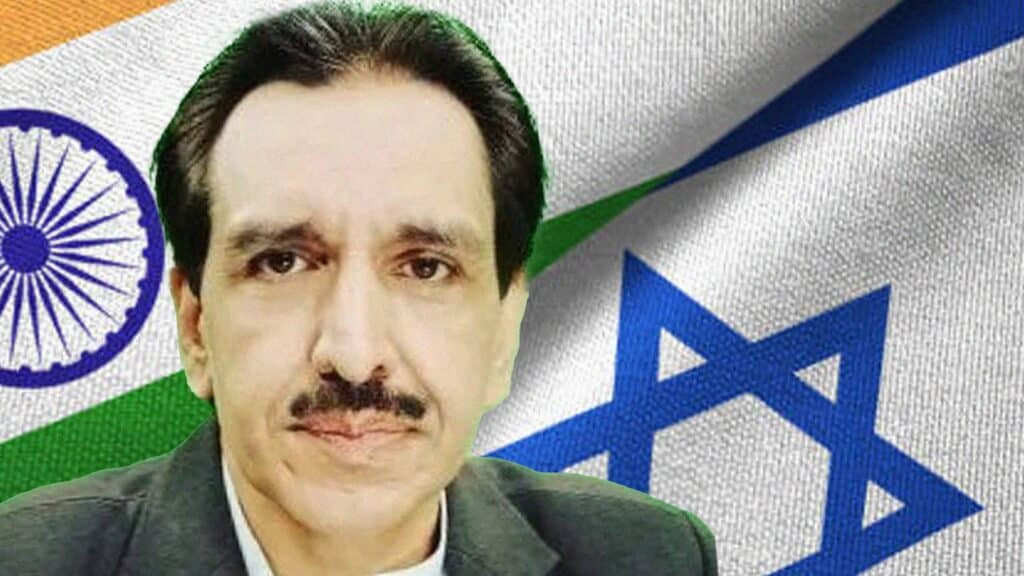Pakistan today faces not just internal security challenges but a complex hybrid war being waged by external actors — notably India, with Israel emerging as a key technological enabler. This alliance has manifested through proxy groups, intelligence collaboration, disinformation campaigns, and increasingly, the suspected deployment of Israeli-origin drones into Pakistani territory.
This growing India-Israel nexus is reshaping the battlefield, fusing traditional kinetic tactics with fifth-generation warfare. The stakes for Pakistan’s sovereignty and stability have never been higher.
India’s Strategic Use of Afghanistan and Proxy Militias
India’s exploitation of Afghanistan’s ungoverned spaces to support anti-Pakistan terrorist networks is well documented. Groups like the Tehreek-e-Taliban Pakistan (TTP), Jamaat-ul-Ahrar, and Lashkar-e-Islam have received logistical, financial, and operational support through Indian intelligence footprints in the region. These groups are tasked with destabilizing Balochistan and Khyber Pakhtunkhwa, targeting not just military assets but also economic projects and civilian populations.
Even after the Taliban’s return to power in Kabul, remnants of this network persist, now splintered and weaker but still active. India’s reliance on non-state actors allows it to maintain plausible deniability while waging a sustained low-intensity war against Pakistan.
Israel’s Emerging Role: Technology and Tactical Support
What makes this wave of proxy warfare different — and more dangerous — is the alleged Israeli involvement in terms of intelligence sharing and advanced military hardware, including drones. Recent reports suggest that eight Israeli drones were smuggled via Iran into parts of South and North Balochistan and KP, allegedly at India’s behest. If verified, this would represent a direct violation of Pakistan’s sovereignty and an unprecedented escalation.
Israel has a long-standing strategic defense partnership with India. From drone technology and cyberwarfare tools to joint intelligence operations, the two countries have deepened military collaboration over the past decade. This axis is not limited to defense cooperation—it extends into regional counter-terrorism narratives, where both New Delhi and Tel Aviv frame their adversaries under the umbrella of “Islamist extremism” to justify interventionist policies.
This ideological overlap allows India to benefit from Israeli tools while lending political cover for otherwise aggressive actions, particularly in disputed or sensitive regions like Kashmir, Gaza, and now, parts of Pakistan.
Disinformation and Media Manipulation
The India-Israel nexus is not only operational but also informational. Both countries have well-established digital infrastructure and influence operations that extend globally. False narratives—such as claims that Pakistan supports Daesh—are being circulated in international media, subtly backed by India’s global lobbying and Israeli media amplification.
These coordinated media strategies aim to erode Pakistan’s international standing and create diplomatic isolation, especially at a time when Islamabad is seeking global investment and economic recovery. Targeted information warfare complements ground-level destabilization — together, they represent a dual-pronged hybrid offensive.
Fracturing of Terrorist Blocs: A Window of Opportunity
Internal rifts among terror factions — particularly between TTP and Jamaat-ul-Ahrar — have created opportunities for Pakistani security forces to neutralize threats more effectively. Infighting over ideological purity, operational strategy, and even political ambitions has fragmented their unity.
Commanders like Ehsanullah Ehsan and Umar Khalid Khurasani have publicly criticised the TTP’s direction, accusing it of abandoning jihadist ideals and engaging with Pakistani politicians — possibly under pressure from Indian handlers. These fissures, if exploited wisely, can dismantle the proxy infrastructure that India has painstakingly built over years.
Diplomatic Realignments: Iran and Afghanistan as Stabilizing Partners
Amid these threats, Pakistan is repositioning itself diplomatically. Iran and Afghanistan, long considered part of the problem, are increasingly becoming part of the solution. With Interior Minister Mohsin Naqvi’s visit to Tehran and back-channel engagements in Kabul, Pakistan is tightening its regional net against trans-border terror.
This pivot comes at a crucial moment. India’s alleged attempt to incite tensions between Iran and Pakistan through cross-border attacks — potentially carried out with smuggled Israeli drones — has not succeeded, thanks to renewed counter-terror cooperation between Islamabad and Tehran.
Afghanistan’s Taliban, for their part, have distanced themselves from groups waging war on foreign soil, a position that aligns with Pakistan’s demands. This new regional synergy is likely what has frustrated Indian efforts to encircle Pakistan through a proxy war.
Conclusion: Time to Go Global with the Case
Pakistan must move fast to internationalize its case. A detailed dossier containing evidence of the India-Israel nexus, drone smuggling, proxy militancy, and digital warfare must be compiled and presented at multilateral forums including the United Nations and OIC. Naming and shaming sponsors of terrorism is no longer a choice—it is a necessity.
The threat Pakistan faces today is not only kinetic but also cognitive. To counter this, Islamabad must wage its own hybrid war — one rooted in truth, law, strategic diplomacy, and public resilience.
The battlefield may be covert, but the aggression is very real. And so must be the response.





